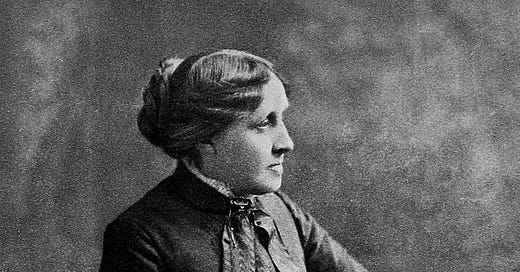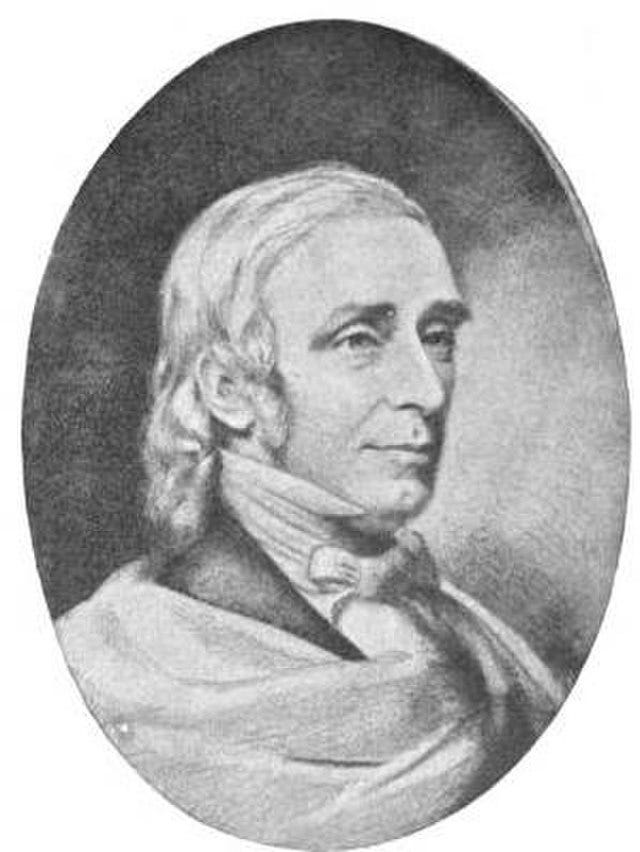“His soul to him a kingdom was…”
This Louisa May Alcott poem honored her father; its legacy honors all who tend to a life of virtue
For this Father’s Day, I hope you enjoy this poem written by Little Women author Louisa May Alcott. She wrote “A.B.A” as an ode to her father, Amos Bronson Alcott.
Mr. Alcott was involved in the Transcendentalist movement of 19th century America. Many of his views were unpopular and widely criticized because they went against convention. He believed in a more principled form of education, rather than authoritarian. During a time when corporal punishment was a prevailing disciplinary method used by schools, he preferred a more conversational style of discipline with students, often talking through problems in a class-wide format. On the occasion corporal punishment was deemed necessary by students, he would offer his hand for the strike in place of his student’s hand because he believed a failure in virtue on the part of his pupil was a failure on his part as an educator.
He was also an ardent supporter of the abolition of slavery and women’s rights.
He enjoyed a philosophical life and adhered to a principled life, which meant he often struggled to fit into society. He once refused to pay a tax that had ties to slavery. This refusal would later inspire in part Henry David Thoreau’s own refusal to pay a tax, and subsequent night spent in jail. This temporary stint resulted in one of Thoreau’s most famous works, Civil Disobedience.
Though he never truly found a philosophical or artistic home, or maybe because of it, Mr. Alcott’s legacy stretches far and wide, from literature and poetry to the educational process and philosophical views on freedom and equality.
Louisa May was especially influenced by her father, and she captured his contemplative, yearning, and at times misunderstood essence well in her poem.
A big hug goes out to all of the wonderful fathers and father-figures celebrating this holiday. Enjoy “A.B.A.” This poem’s for you.
“A.B.A”
Like Bunyan's pilgrim with his pack,
Forth went the dreaming youth
To seek, to find, and make his own
Wisdom, virtue, and truth.
Life was his book, and patiently
He studied each hard page;
By turns reformer, outcast, priest,
Philosopher and sage.
Christ was his Master, and he made
His life a gospel sweet;
Plato and Pythagoras in him
Found a disciple meet.
The noblest and best his friends,
Faithful and fond, though few;
Eager to listen, learn, and pay
The love and honor due.
Power and place, silver and gold,
He neither asked nor sought;
Only to serve his fellowmen,
With heart and word and thought.
A pilgrim still, but in his pack
No sins to frighten or oppress;
But wisdom, morals, piety,
To teach, to warn and bless.
The world passed by, nor cared to take
The treasure he could give;
Apart he sat, content to wait
And beautifully live;
Unsaddened by long, lonely years
Of want, neglect, and wrong,
His soul to him a kingdom was,
Steadfast, serene, and strong.
Magnanimous and pure his life,
Tranquil its happy end;
Patience and peace his handmaids were,
Death an immortal friend.
For him no monuments need rise,
No laurels make his pall;
The mem'ry of the good and wise
Outshines, outlives them all.





A beautiful echo of Sir Edward Dyer's poem "My Mind to Me a Kingdom Is": https://classicpoems.substack.com/p/my-mind-to-me-a-kingdom-is
What a nice story and poem! What would I do without you to supply me with verse?